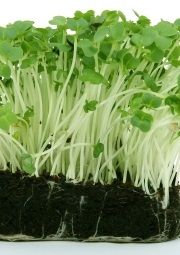The nutritional value of apricots
Apricots can be a tasty snack or addition to your breakfast but they’re also packed with nutritional value. The article ” 9 Health and Nutrition Benefits of Apricots” by Healthline lists just some of the reasons to stock up your fruit bowl with the small orange fruit.
While the stone in an apricot is inedible, it’s important to eat the fruit with the skin left on to secure the highest nutritional benefit as it’s loaded with fibre. Apricots are also a good source of essential vitamins such as vitamin A and vitamin E.
Apricots are naturally high in antioxidants and, because apricots are so easy to include in your diet, in either fresh or dried form, they can be a great way of giving your diet a boost of vitamins and minerals.
Some facts about protein
Protein seems to be emblazoned on all sorts of food items in supermarkets at the moment, but what do we actually know about protein?
The article "5 little-known facts about protein” by Examine.com looks at some of the lesser known values of the nutrient.
Besides supporting muscle recovery, protein is one of the most satiating macronutrients, keeping us feeling fuller for longer so can be incorporated into meals to assist with maintaining a normal body weight. Protein is also how your body secures the 9 essential amino acids that it cannot synthesize, which are important for staying healthy.

Garden cress fortified with vitamin B12
Vitamin B12 is important for the maintenance of a range of normal functions within the body including the functioning of the nervous system, normal energy-yielding metabolism and a reduction of tiredness and fatigue. However, one of the most common sources of B12 is animal proteins, so it can be more difficult for vegetarians and vegans to maintain the right levels of the vitamin.
Researchers now believe they have found a plant-based way of upping our vitamin B12 levels by fortifying garden cress. The article “Vitamin Research: Scientists Make Breakthrough with Vitamin B12” by Balitmore Post-Examiner reports on research from the University of Kent, which has found that the herb can be fortified naturally through the soil and surroundings its grown in.
While the findings look promising, it is said that more research needs to be completed before this fortified cress can be considered a mainstream plant-based source of vitamin B12.
Share your thoughts
Agree with the findings in this week’s Nutrition News? Share your thoughts with us on Facebook and Twitter.
 Alison is Director and Founder of Metabolics who writes about Metabolics updates, events and natural healthcare. Her experience and passion for natural supplements and healthcare comes from her years of experience as a practising osteopath, having founded Metabolics in her search for high quality, natural products in her own work. Alison has been a qualified and practising Osteopath since 1981 and regularly gives seminars on a range of healthcare subjects to the wider practitioner community helping share her knowledge and experience.
Alison is Director and Founder of Metabolics who writes about Metabolics updates, events and natural healthcare. Her experience and passion for natural supplements and healthcare comes from her years of experience as a practising osteopath, having founded Metabolics in her search for high quality, natural products in her own work. Alison has been a qualified and practising Osteopath since 1981 and regularly gives seminars on a range of healthcare subjects to the wider practitioner community helping share her knowledge and experience.


